Abstract
Social constructionists occasionally single out behavior analysis as the field of psychology that most closely resembles the natural sciences in its commitment to empiricism, and accuses it of suffering from many of the limitations to science identified by the postmodernist movement (e.g., K. J. Gergen, 1985a; Soyland, 1994). Indeed, behavior analysis is a natural science in many respects. However, it also shares with social constructionism important epistemological features such as a rejection of mentalism, a functional-analytic approach to language, the use of interpretive methodologies, and a reflexive stance on analysis. The current paper outlines briefly the key tenets of the behavior-analytic and social constructionist perspectives before examining a number of commonalties between these approaches. The paper aims to show that far from being a nemesis to social constructionism, behavior analysis may in fact be its close ally.
Keywords: contextualism, social constructionism, behavioral hermeneutics, behavior analysis, discursive psychology, postmodernism
Full text
PDF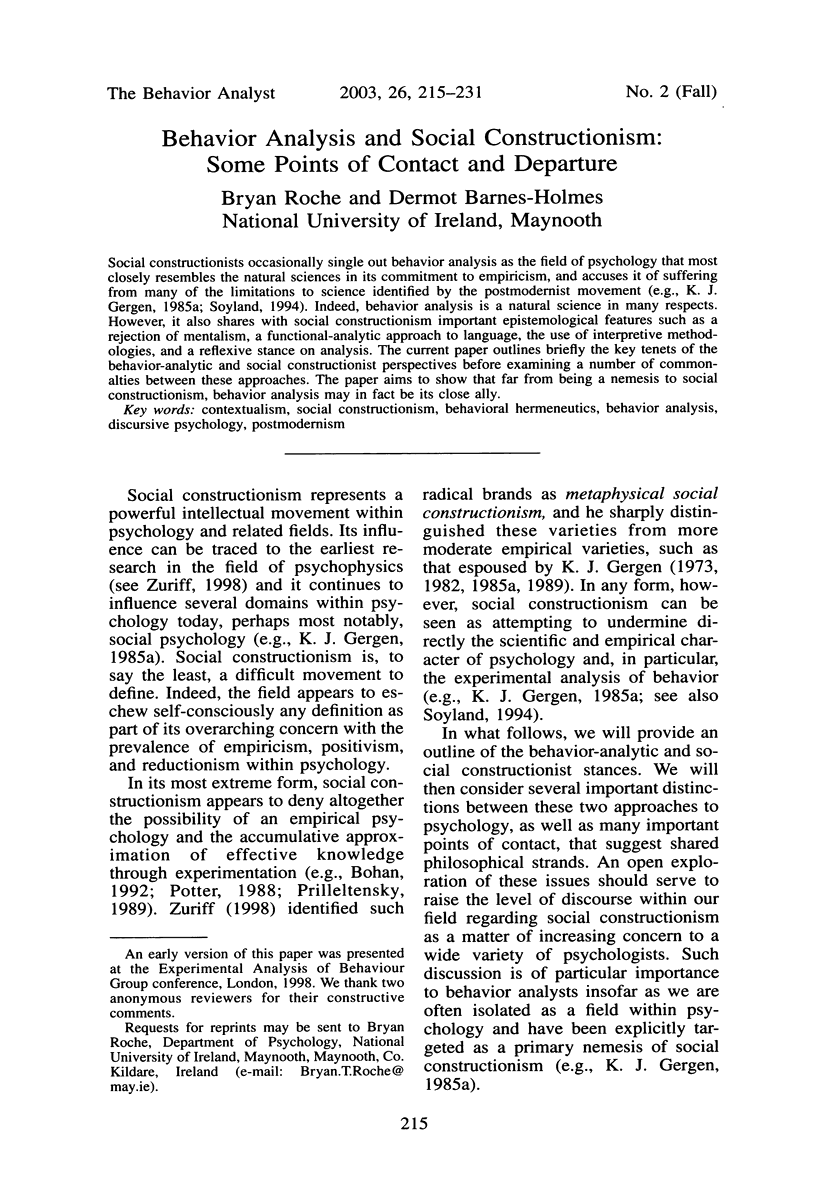
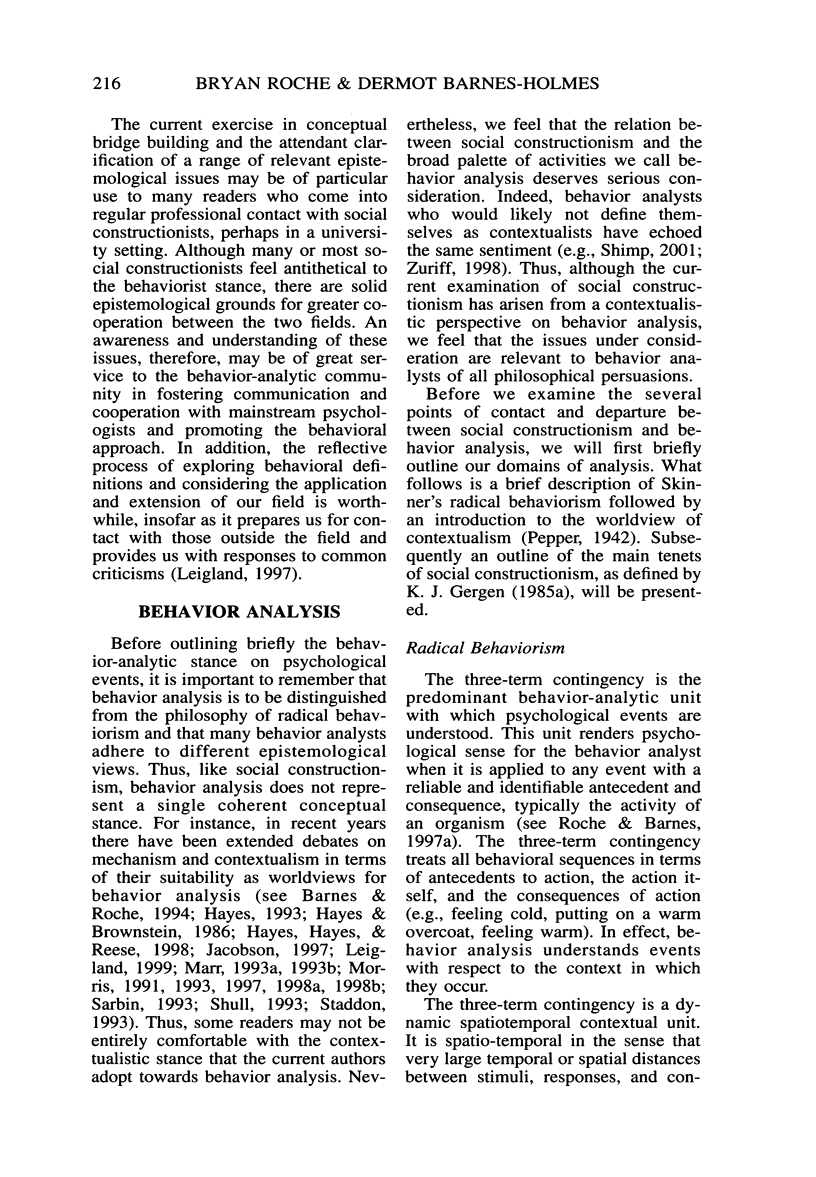
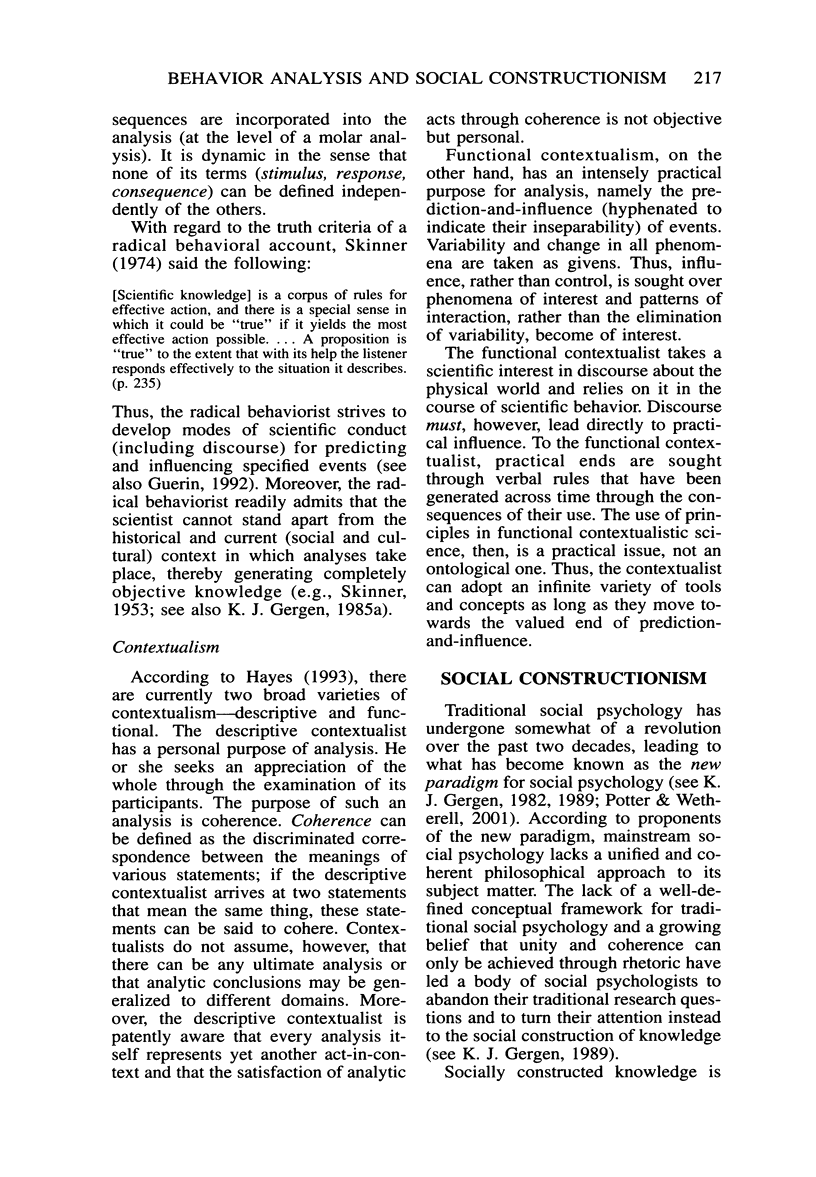
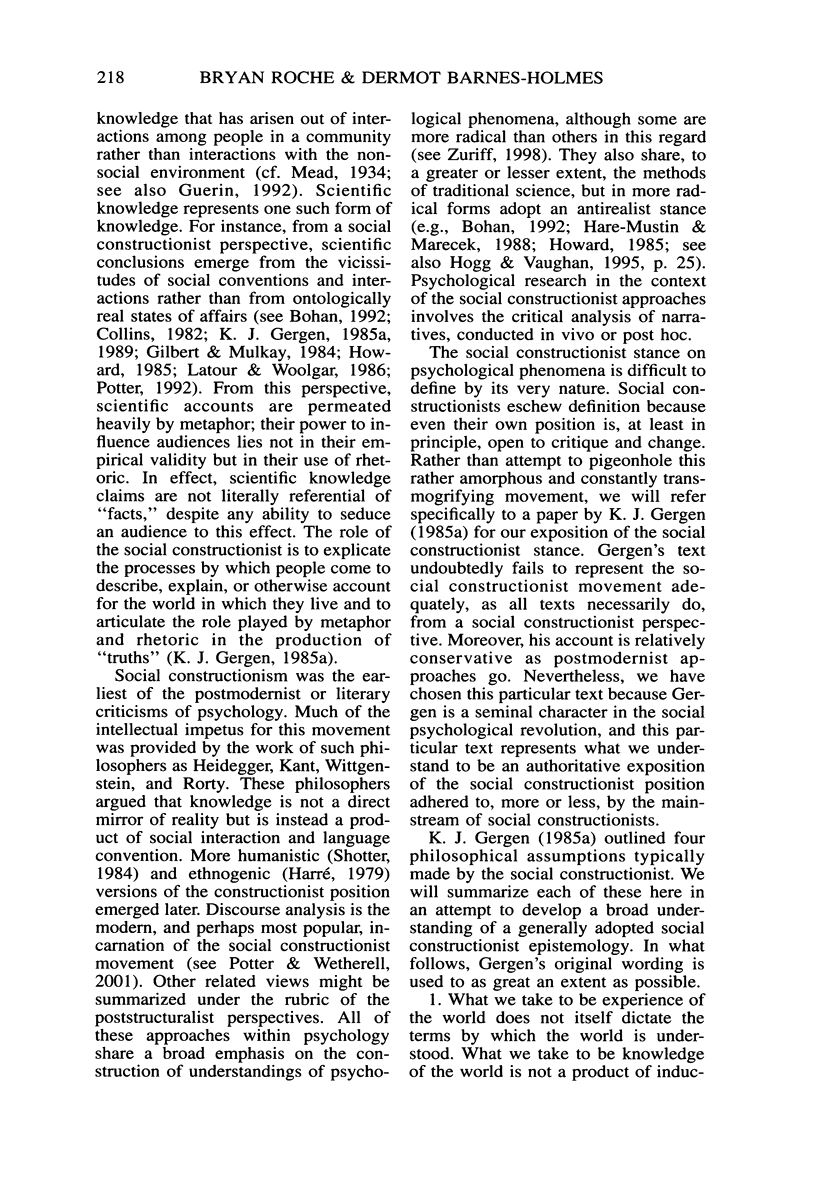
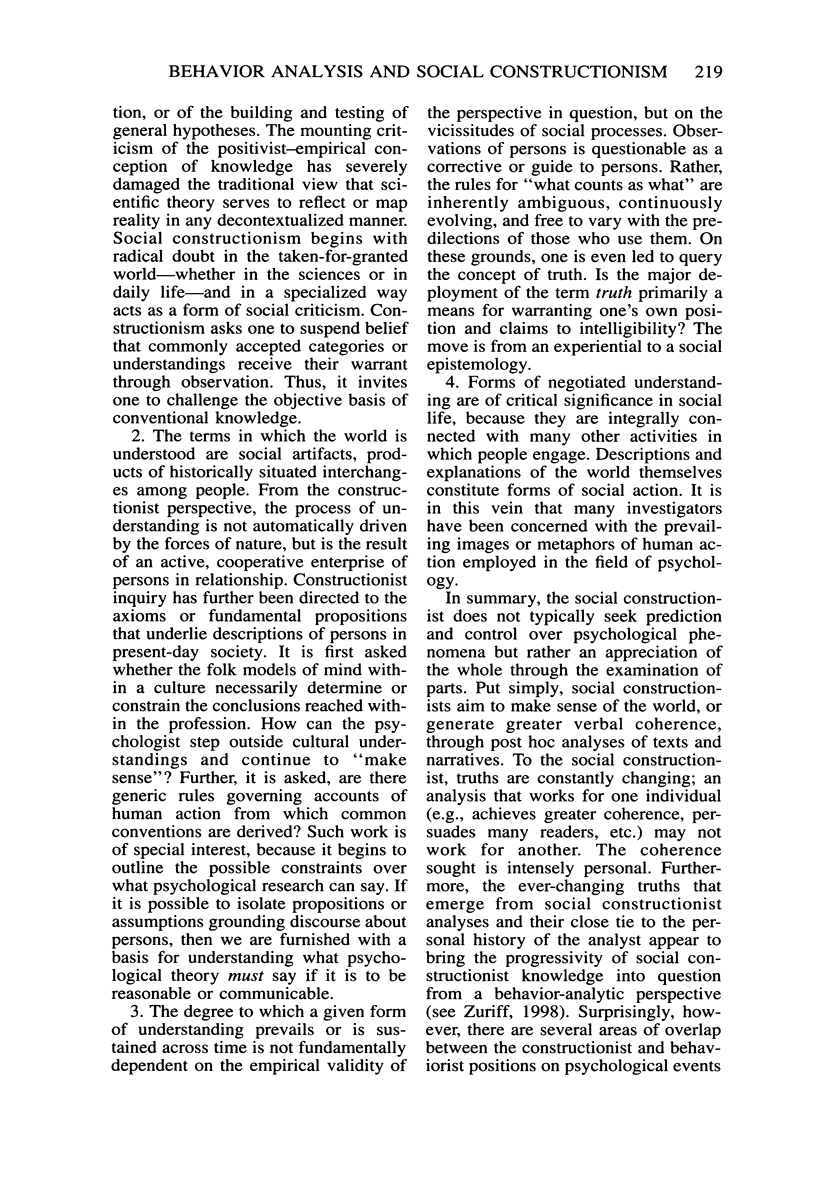
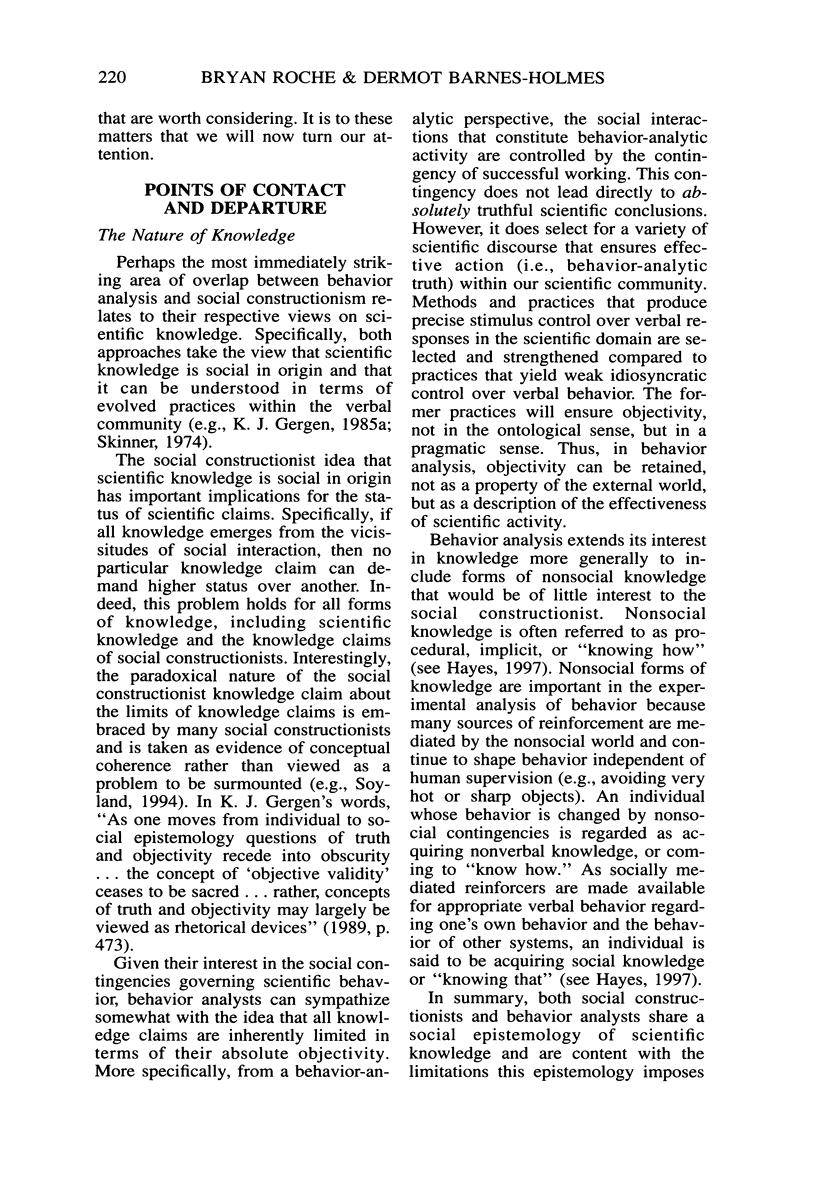
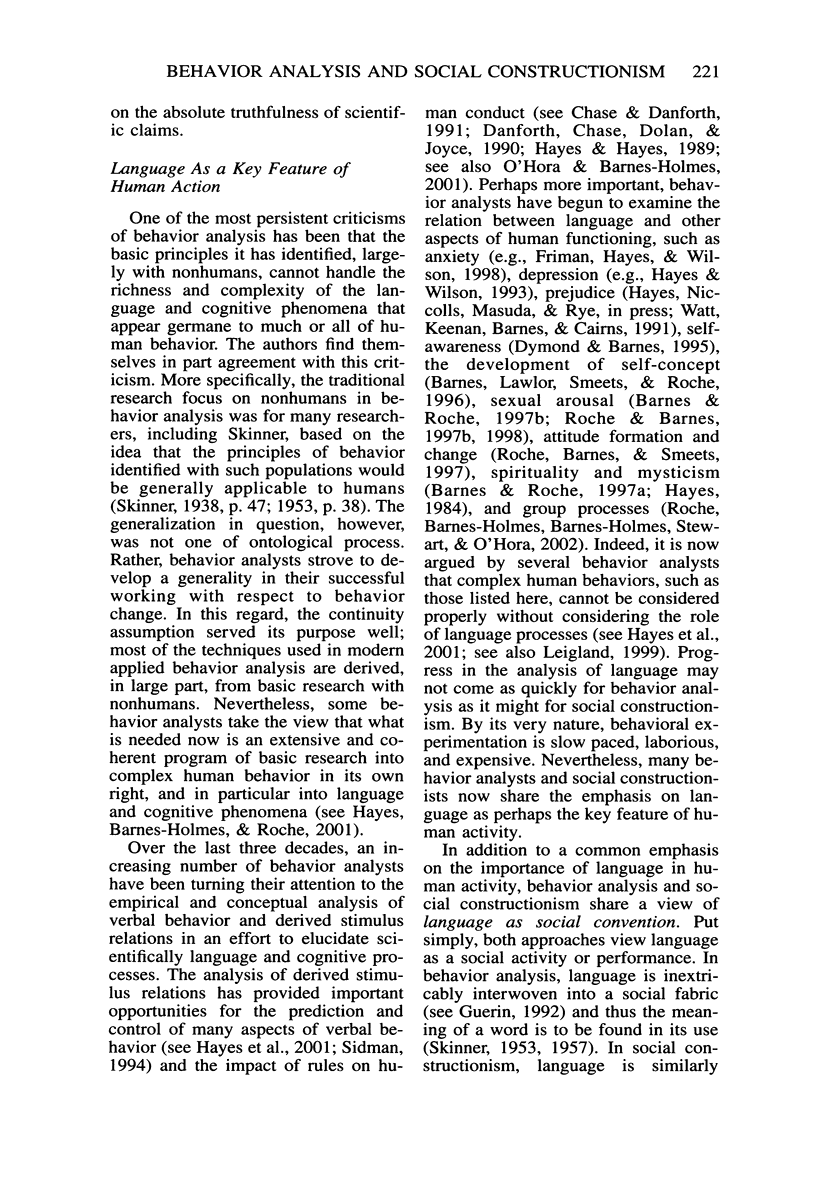
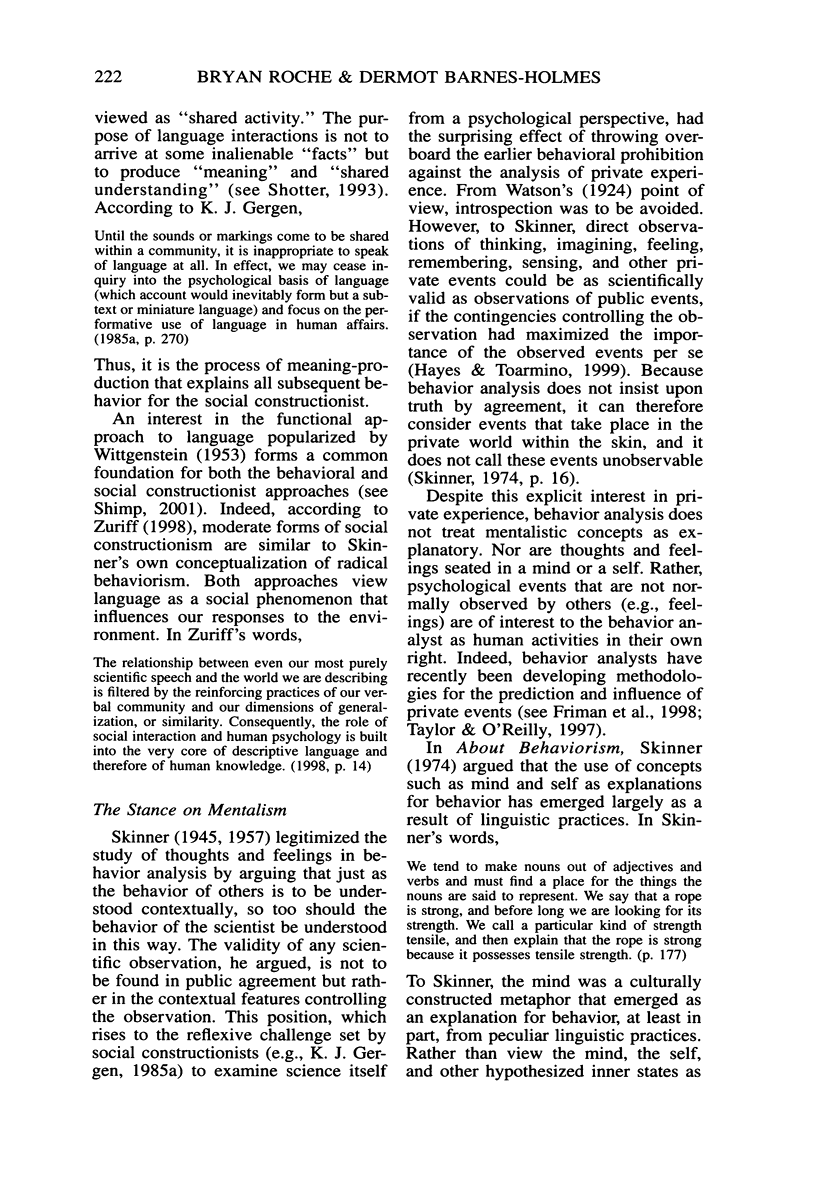
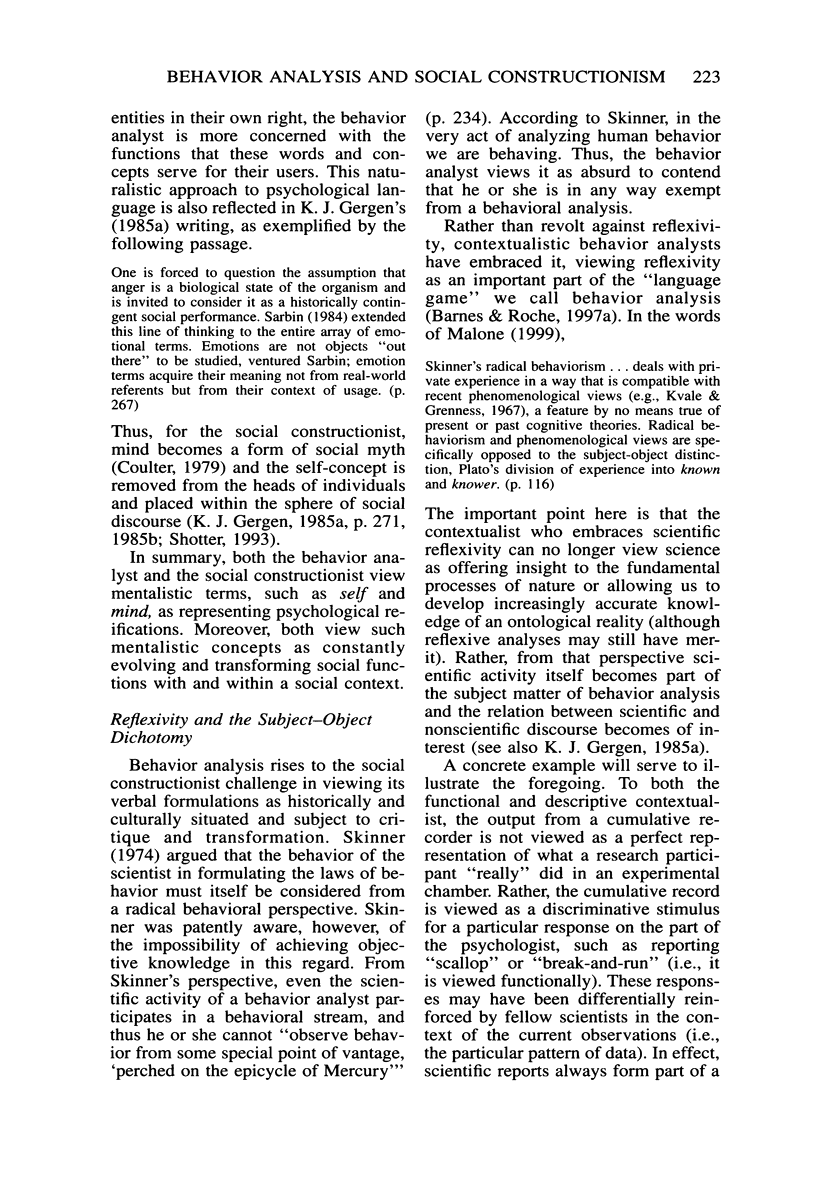
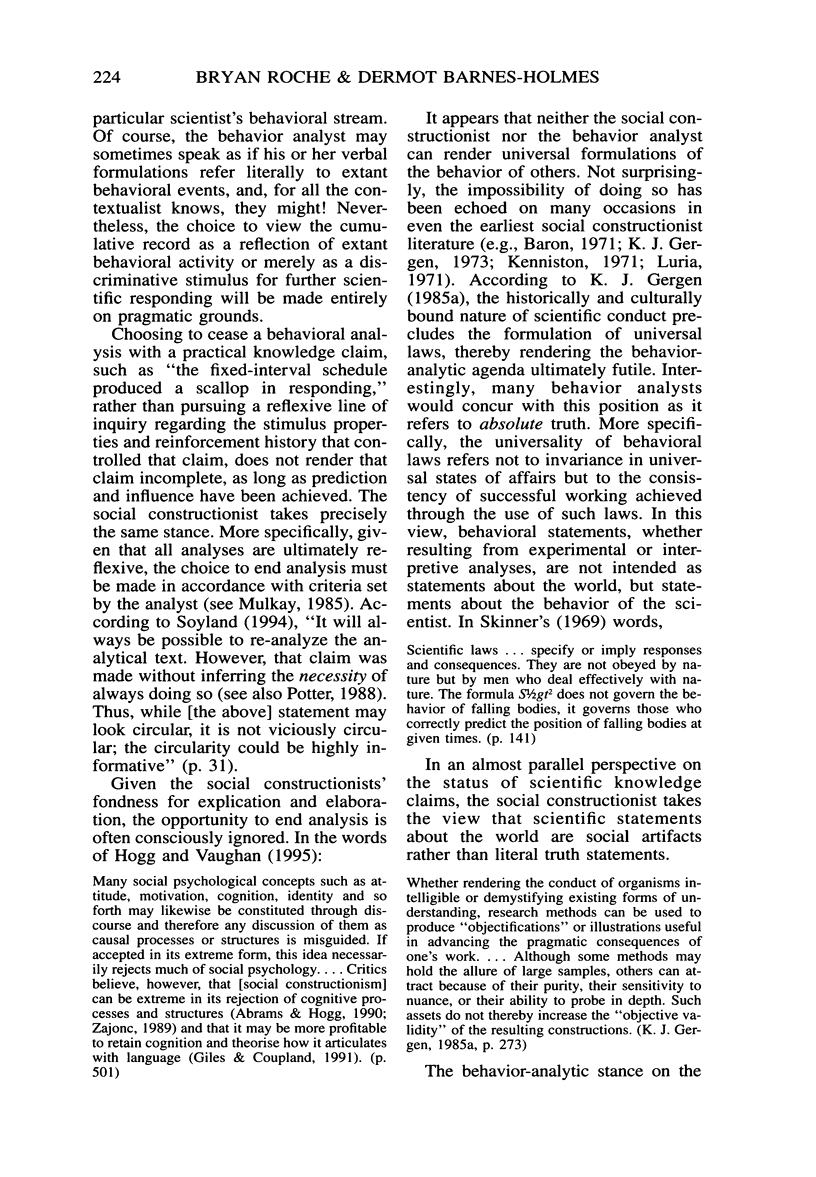
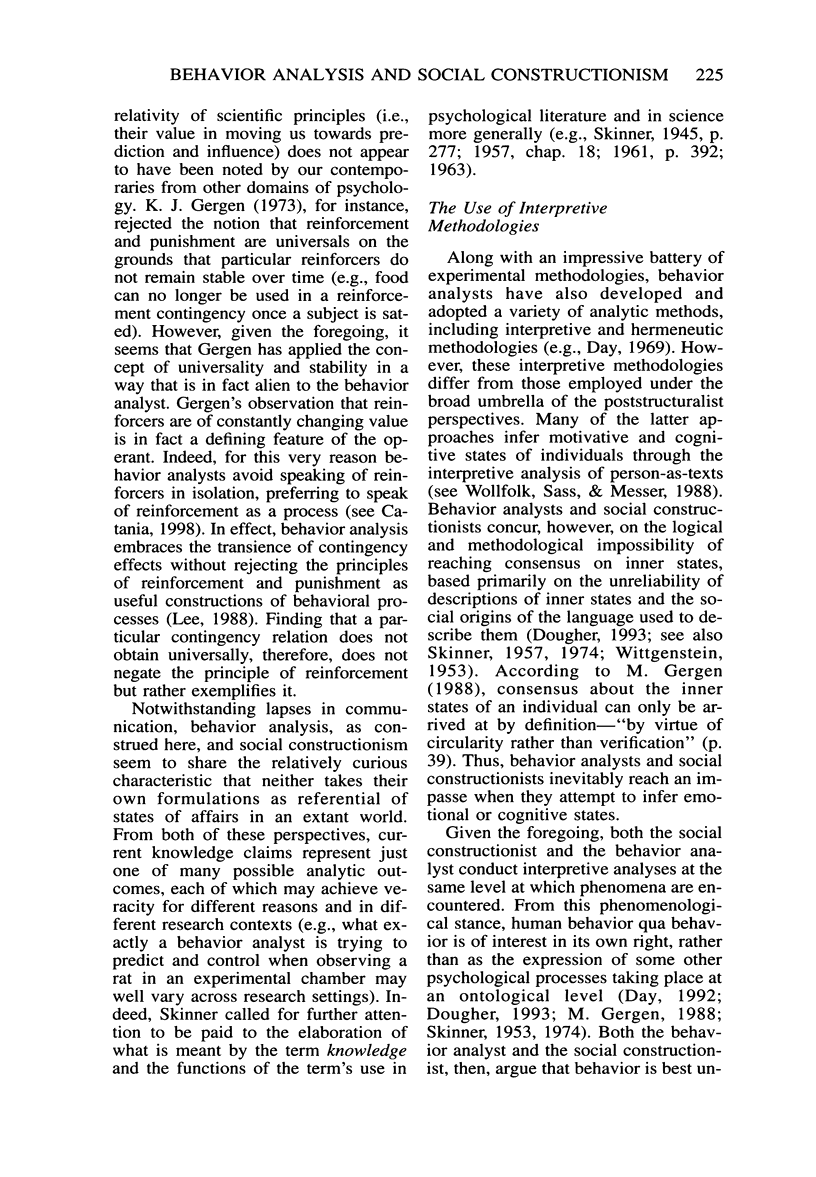
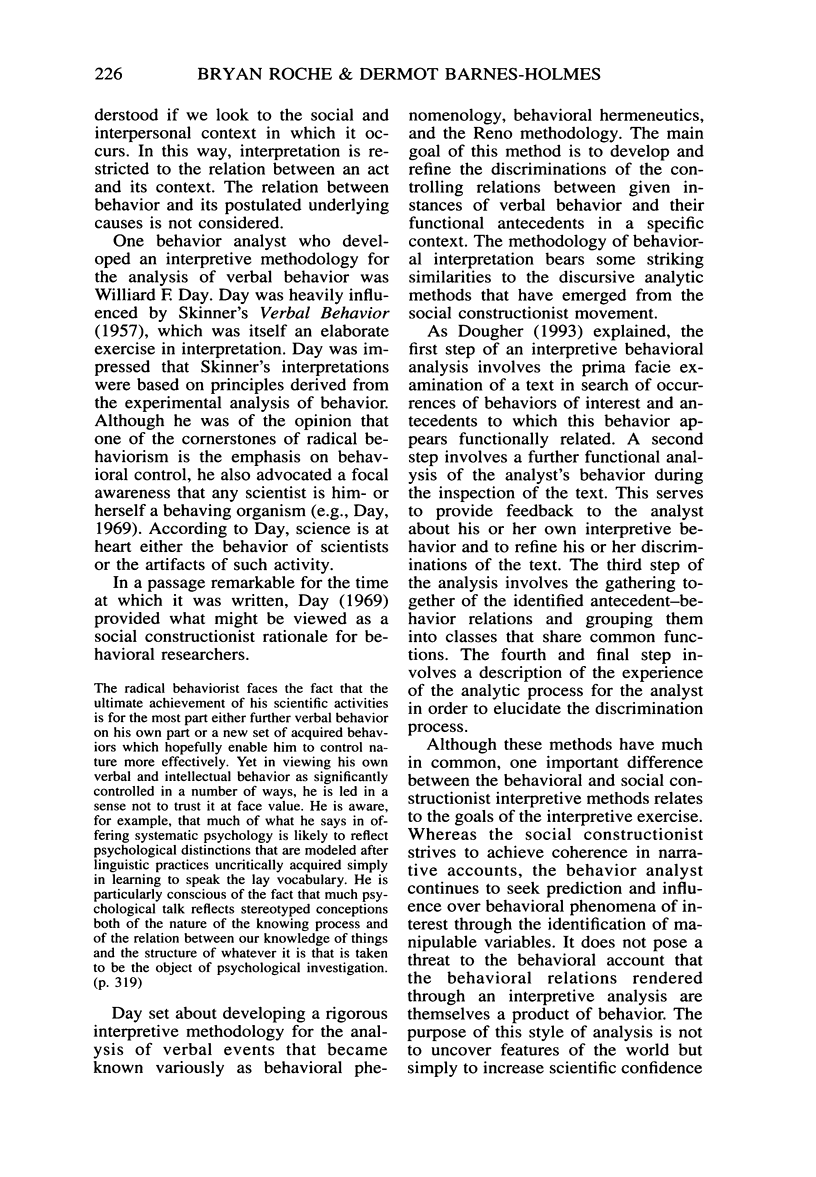
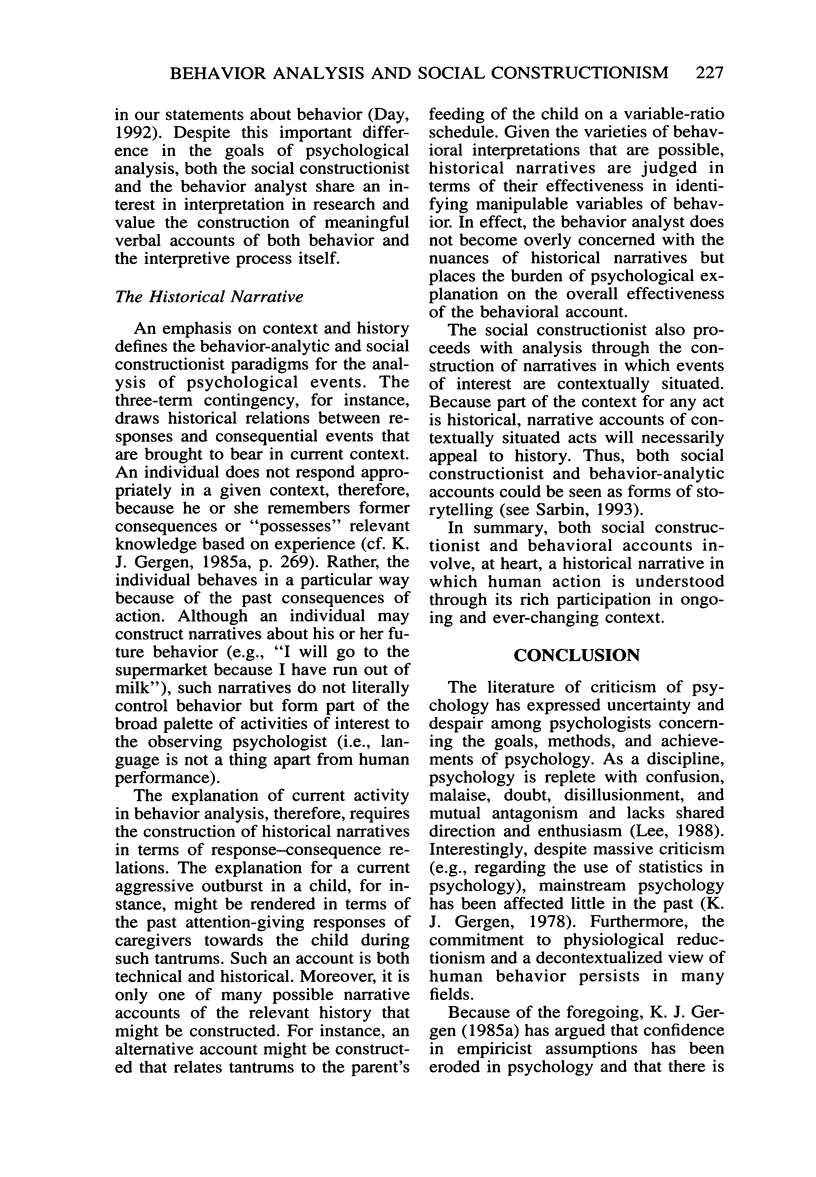
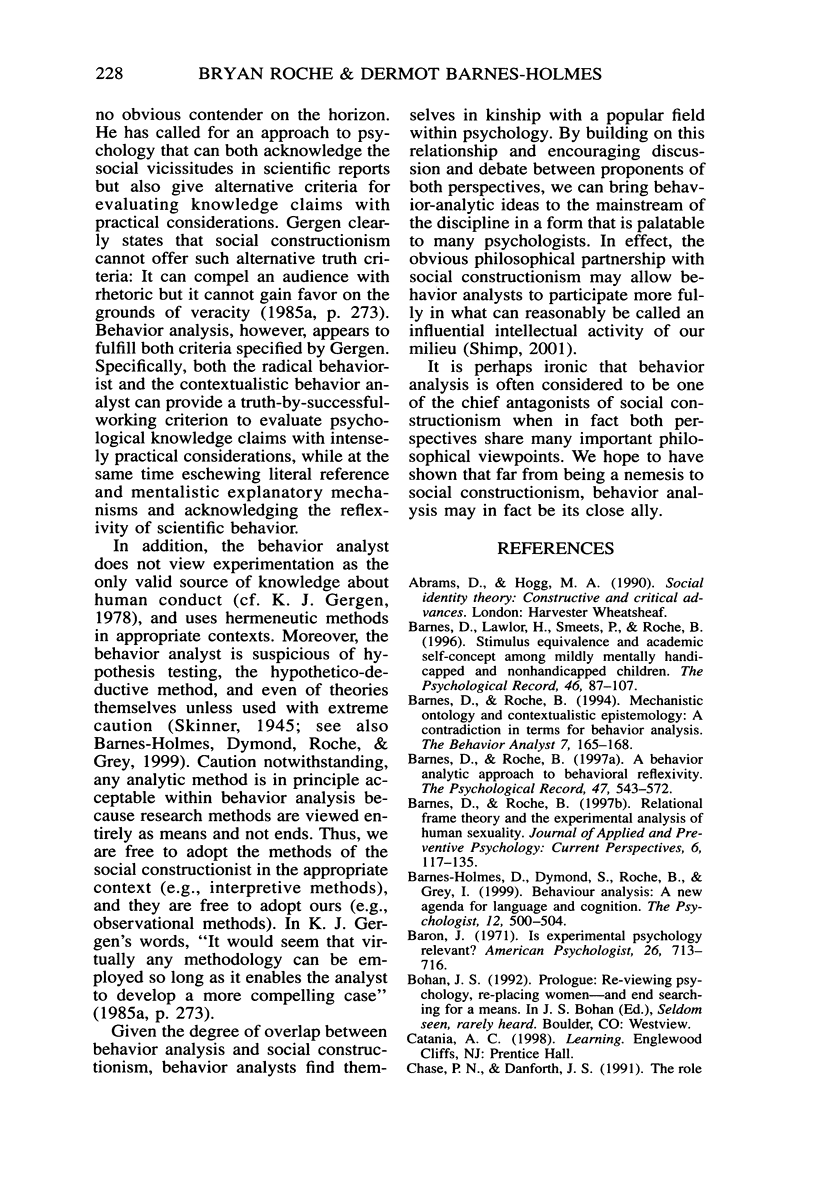
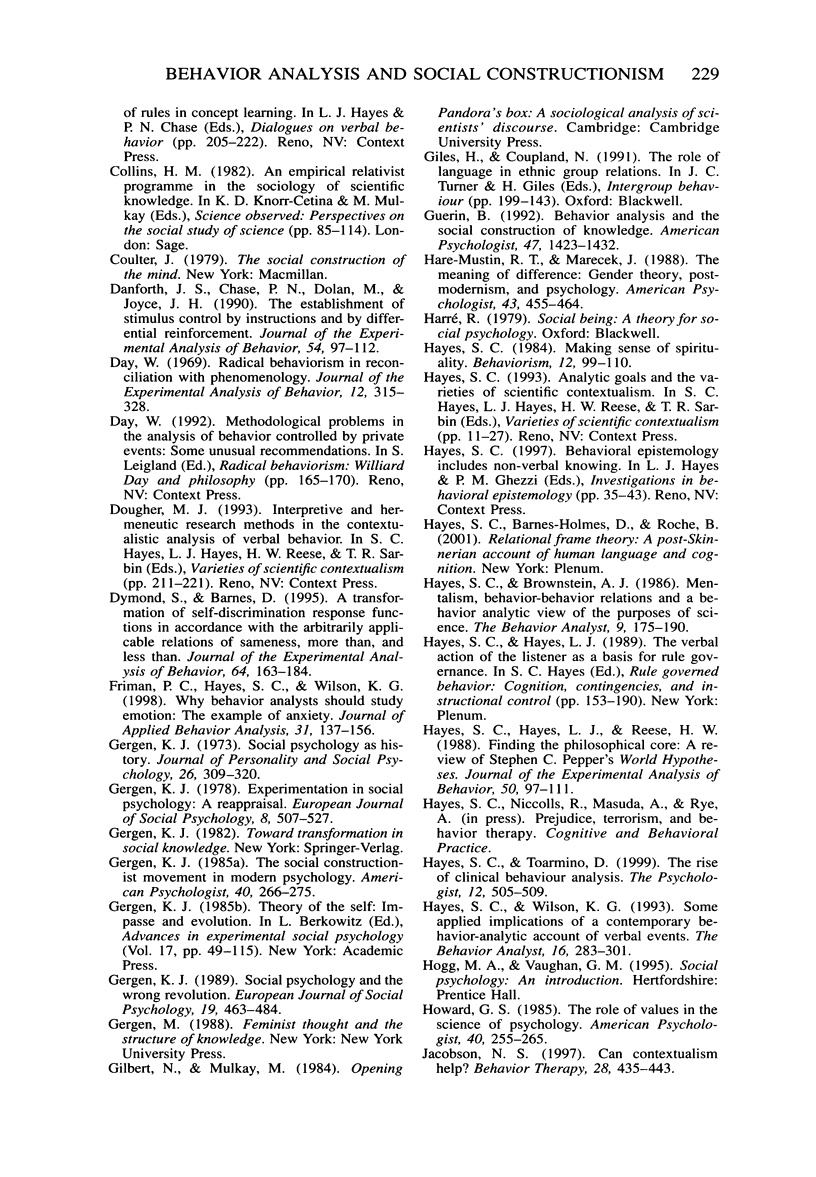
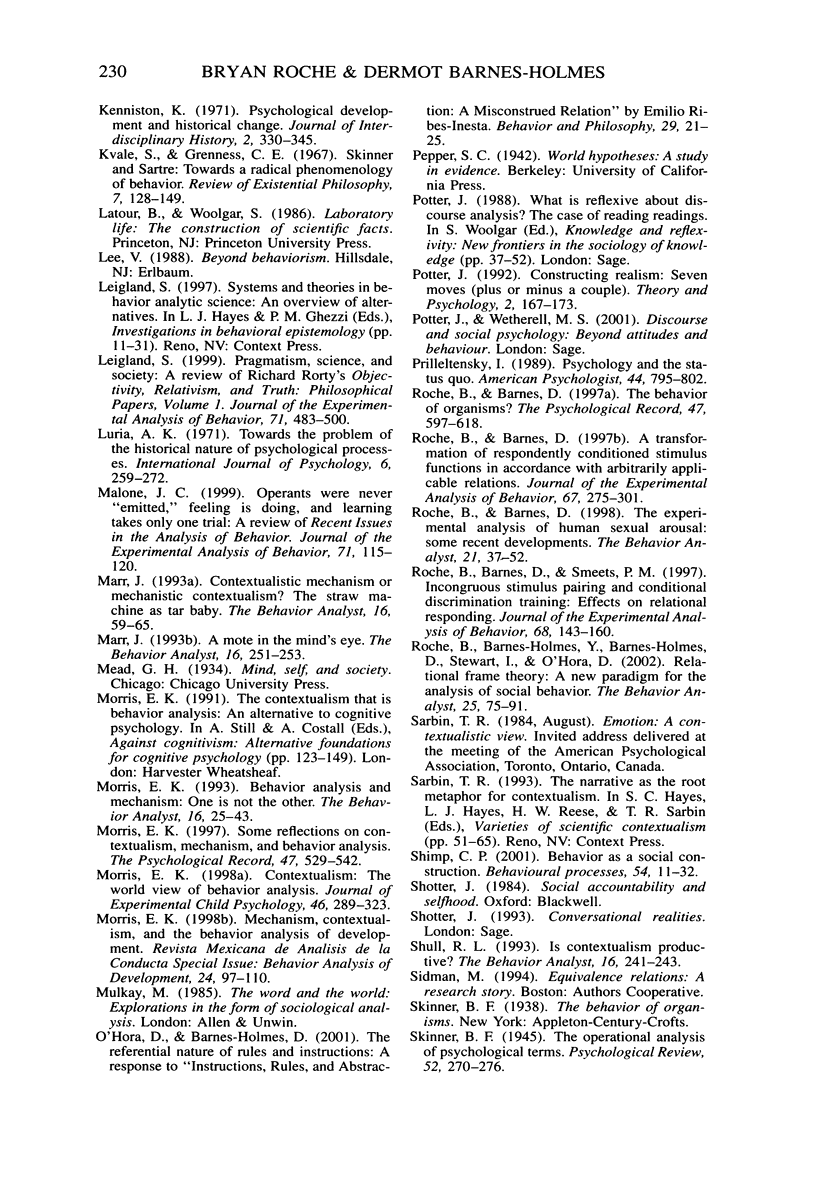
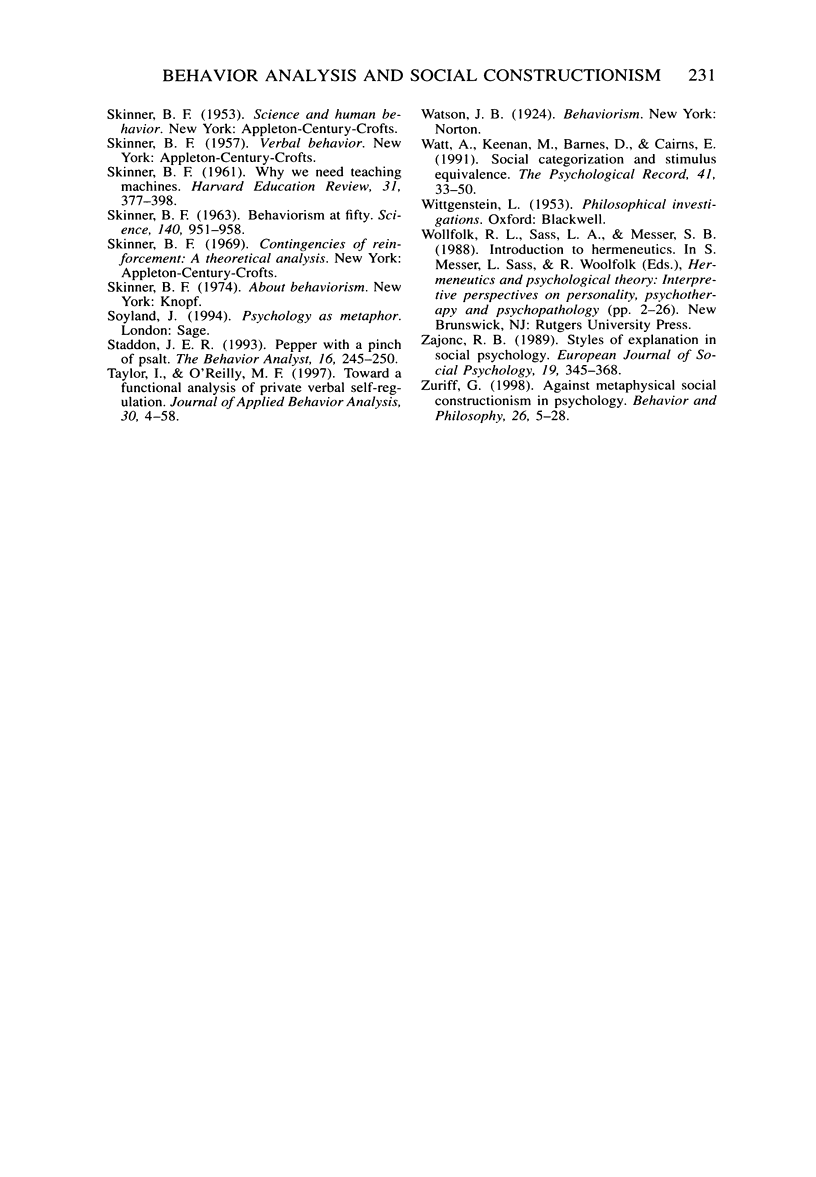
Selected References
These references are in PubMed. This may not be the complete list of references from this article.
- Barnes D., Roche B. Mechanistic ontology and contextualistic epistemology: A contradiction within behavior analysis. Behav Anal. 1994 Spring;17(1):165–168. doi: 10.1007/BF03392662. [DOI] [PMC free article] [PubMed] [Google Scholar]
- Baron J. Is experimental psychology relevant? Am Psychol. 1971 Aug;26(8):713–716. doi: 10.1037/h0032061. [DOI] [PubMed] [Google Scholar]
- Danforth J. S., Chase P. N., Dolan M., Joyce J. H. The establishment of stimulus control by instructions and by differential reinforcement. J Exp Anal Behav. 1990 Sep;54(2):97–112. doi: 10.1901/jeab.1990.54-97. [DOI] [PMC free article] [PubMed] [Google Scholar]
- Day W. F. Radical behaviorism in reconciliation with phenomenology. J Exp Anal Behav. 1969 Mar;12(2):315–328. doi: 10.1901/jeab.1969.12-315. [DOI] [PMC free article] [PubMed] [Google Scholar]
- Dymond S., Barnes D. A transformation of self-discrimination response functions in accordance with the arbitrarily applicable relations of sameness, more than, and less than. J Exp Anal Behav. 1995 Sep;64(2):163–184. doi: 10.1901/jeab.1995.64-163. [DOI] [PMC free article] [PubMed] [Google Scholar]
- Friman P. C., Hayes S. C., Wilson K. G. Why behavior analysts should study emotion: the example of anxiety. J Appl Behav Anal. 1998 Spring;31(1):137–156. doi: 10.1901/jaba.1998.31-137. [DOI] [PMC free article] [PubMed] [Google Scholar]
- Hayes S. C., Brownstein A. J. Mentalism, behavior-behavior relations, and a behavior-analytic view of the purposes of science. Behav Anal. 1986 Fall;9(2):175–190. doi: 10.1007/BF03391944. [DOI] [PMC free article] [PubMed] [Google Scholar]
- Hayes S. C., Hayes L. J., Reese H. W. Finding the philosophical core: A review of Stephen C. Pepper's World Hypotheses: A Study in Evidence. J Exp Anal Behav. 1988 Jul;50(1):97–111. doi: 10.1901/jeab.1988.50-97. [DOI] [PMC free article] [PubMed] [Google Scholar]
- Hayes S. C., Wilson K. G. Some applied implications of a contemporary behavior-analytic account of verbal events. Behav Anal. 1993 Fall;16(2):283–301. doi: 10.1007/BF03392637. [DOI] [PMC free article] [PubMed] [Google Scholar]
- Leigland S. Pragmatism, Science, And Society: A Review Of Richard Rorty's Objectivity, Relativism, and Truth: Philosophical Papers, Volume 1. J Exp Anal Behav. 1999 May;71(3):483–500. doi: 10.1901/jeab.1999.71-483. [DOI] [PMC free article] [PubMed] [Google Scholar]
- Malone J. Operants Were Never "Emitted," Feeling Is Doing, And Learning Takes Only One Trial: A Review Of B. F. Skinner's Recent Issues In The Analysis Of Behavior. J Exp Anal Behav. 1999 Jan;71(1):115–120. doi: 10.1901/jeab.1999.71-115. [DOI] [PMC free article] [PubMed] [Google Scholar]
- Marr J. A mote in the mind's eye. Behav Anal. 1993 Fall;16(2):251–253. doi: 10.1007/BF03392633. [DOI] [PMC free article] [PubMed] [Google Scholar]
- Marr M. J. Contextualistic mechanism or mechanistic contextualism?: The straw machine as tar baby. Behav Anal. 1993 Spring;16(1):59–65. doi: 10.1007/BF03392611. [DOI] [PMC free article] [PubMed] [Google Scholar]
- Morris E. K. Behavior analysis and mechanism: One is not the other. Behav Anal. 1993 Spring;16(1):25–43. doi: 10.1007/BF03392606. [DOI] [PMC free article] [PubMed] [Google Scholar]
- Roche B., Barnes D. A transformation of respondently conditioned stimulus function in accordance with arbitrarily applicable relations. J Exp Anal Behav. 1997 May;67(3):275–301. doi: 10.1901/jeab.1997.67-275. [DOI] [PMC free article] [PubMed] [Google Scholar]
- Roche B., Barnes D., Smeets P. Incongruous stimulus pairing and conditional discrimination training: effects on relational responding. J Exp Anal Behav. 1997 Sep;68(2):143–160. doi: 10.1901/jeab.1997.68-143. [DOI] [PMC free article] [PubMed] [Google Scholar]
- Roche B., Barnes D. The experimental analysis of human sexual arousal: Some recent developments. Behav Anal. 1998 Spring;21(1):37–52. doi: 10.1007/BF03392779. [DOI] [PMC free article] [PubMed] [Google Scholar]
- Roche Bryan, Barnes-Holmes Yvonne, Barnes-Holmes Dermot, Stewart Ian, O'Hora Denis. Relational frame theory: A new paradigm for the analysis of social behavior. Behav Anal. 2002 Spring;25(1):75–91. doi: 10.1007/BF03392046. [DOI] [PMC free article] [PubMed] [Google Scholar]
- SKINNER B. F. Behaviorism at fifty. Science. 1963 May 31;140(3570):951–958. doi: 10.1126/science.140.3570.951. [DOI] [PubMed] [Google Scholar]
- Shimp C. P. Behavior as a social construction. Behav Processes. 2001 May 3;54(1-3):11–32. doi: 10.1016/s0376-6357(01)00147-4. [DOI] [PubMed] [Google Scholar]
- Shull R. L., Lawrence P. S. Is contextualism productive? Behav Anal. 1993 Fall;16(2):241–243. doi: 10.1007/BF03392631. [DOI] [PMC free article] [PubMed] [Google Scholar]
- Staddon J. E. Pepper with a pinch of psalt. Behav Anal. 1993 Fall;16(2):245–250. doi: 10.1007/BF03392632. [DOI] [PMC free article] [PubMed] [Google Scholar]
- Taylor I., O'Reilly M. F. Toward a functional analysis of private verbal self-regulation. J Appl Behav Anal. 1997 Spring;30(1):43–58. doi: 10.1901/jaba.1997.30-43. [DOI] [PMC free article] [PubMed] [Google Scholar]


